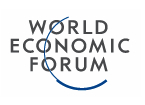Global Leaders Call for Big Push on Aid to Africa at World Economic Forum Meeting in Davos
Published 01-28-05
Submitted by World Economic Forum
British Prime Minister Tony Blair called for "a practical, workable plan" to eradicate entrenched African poverty, famine and disease. The six leaders, drawn from the worlds of business, politics and the arts, were speaking at the Annual Meeting 2005 of the World Economic Forum in a plenary session on Africa and the G-8. Britain is current President of the G-7 (the G-8 minus Russia).
Blair said the plan is needed to manage the flows of aid which all panellists agreed have started to flow to Africa, but all concurred is not enough. Bill Gates, Co-Founder of the Bill & Melinda Gates Foundation, recently gave US$ 750m for a global programme to vaccinate children against deadly diseases and "to help come up with miracle solutions". So he was "on the health front, very optimistic".
Blair committed the UK to treble its aid to Africa, and to ensure that aid is more effectively implemented. Rich nations in Europe continue to cancel debt, and are seeing results, e.g., millions more African children in schools. Meanwhile, leaders of Africa's two biggest democracies - President Thabo Mbeki of South Africa and President Olusegun Obasanjo of Nigeria - pledged to demonstrate that combinations of aid, trade and debt reduction are being matched by visible and measurable improvements by Africans on the ground. Under an Africa-wide vision, said Mbeki, "We are addressing these issues, from good governance to the institutionalized peer review mechanism" within the new African Union.
The reason for the increases in aid, panellists agreed, has as much to do with empathy for people trying to improve their lot as it does with enlightened self-interest. By helping make Africa secure and peaceful, the rich nations make their own world secure.
"It is touching to be told that we have a heart for these matters, but sometimes it's better to have a hard head," said Bono. "The Marshall plan that came out for Europe wasn't just from the goodness of the [US] heart, but as a bulwark against Sovietism. We're saying a Marshall-type plan [for Africa] could be against the tyranny of our time, on the front line of terror."
Participants repeatedly pointed out that one thousand dollars in aid can, and does, save an African life. And yet several worried that the global debate could get easily sapped or delayed over semantics. "With 3,000 Africans dying each day from a mosquito bite, it's not a cause," said Bono, "it's an emergency."
Likewise, debate over the intricacies of global revenue generation for aid cannot be allowed to sidetrack the implementation of aid funds already available, panellists said.
"Leaders get this now," said Clinton. "There has been a sea change in the last five years in Congress when it comes to aid." "What's more," he added, "It's cheap. Let's get real. The President just asked Congress for US$ 80 billion for one year for Iraq. For a pittance we could double America's contribution and it would be cheap. Aid is working. The corruption issue is bogus. We ought to do more, but it's not rocket science. We can start saving lives."
He said Americans have been under the "colossal misunderstanding" that their nation gives 8-10% of gross domestic product in aid when in fact the figure is less than 1%. But the massive public and private outpouring after the tsunami revealed humanity's more generous spirit.
"The interesting thing," Clinton said, "is that more than half [of the funds raised] came through the Internet. We're seeing the democratization, if you will, of international assistance through the Internet in the same way we saw the democratization of campaign contributions in the last election."


